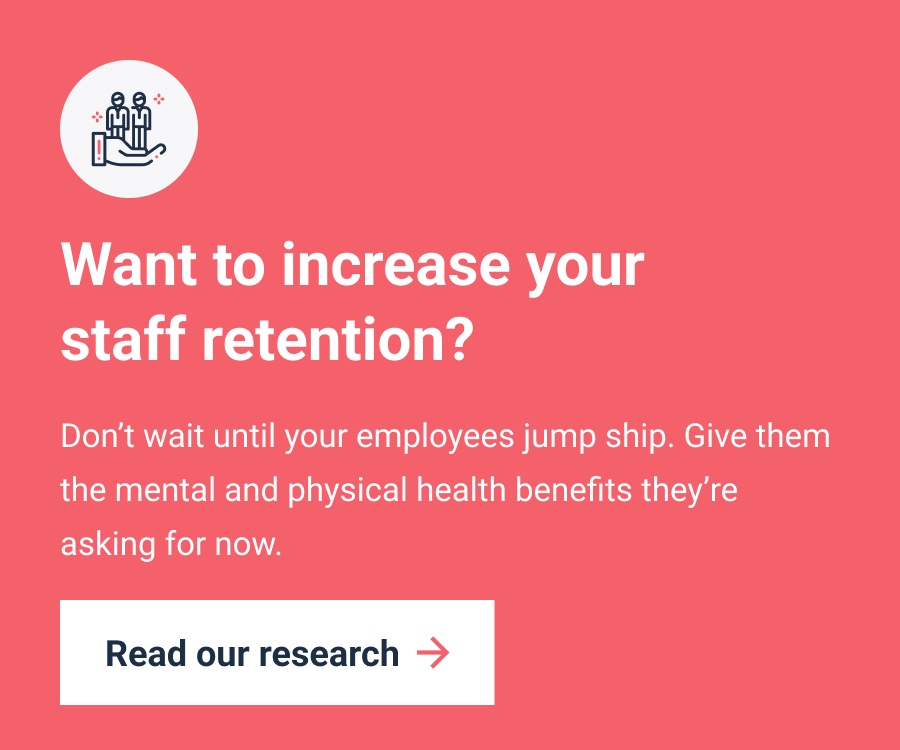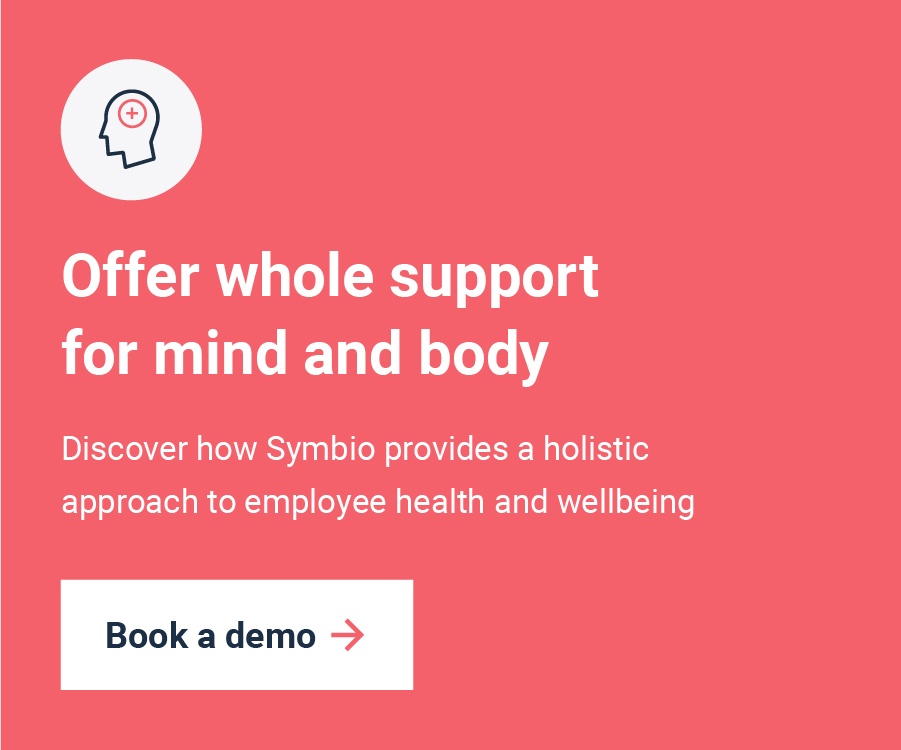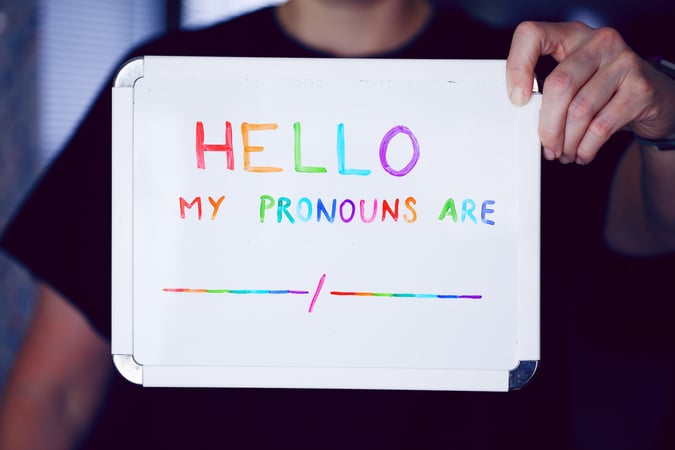The tagline for this year’s Neurodiversity Celebration Week is ‘celebrating different minds’. Because neurodiverse people’s conditions are often their superpower. They don’t think like neurotypical people. In the workplace, this is especially beneficial.
One in seven of us are neurodiverse. This means roughly 15 percent of people have different triggers for stress and anxiety. And, they often have different coping mechanisms to manage them—ones that may seem at odds with standard workplace practices.
Yet, it also means 15 percent of your colleagues might take a fresh approach to problem-solving, might make new discoveries, might see details that their neurotypical colleagues miss.
Neurodiversity Celebration Week runs from 13-19 March, 2023, and aims to challenge the misconceptions around neurological differences. So, you can learn how to truly embrace a diverse workplace—and reap the rewards of a workforce with unique and often amazing abilities.
With that in mind, let’s look at six workplace conversation starters for Neurodiversity Celebration Week.
1. What do we mean by neurodiversity?
Neurodiversity refers to several conditions. And because there is evidence these conditions can co-occur, neurodiverse people may deal with one or more of the following:
- ASD. Autism Spectrum Disorder affects how people interact and communicate.
- ADHD. Attention Deficit Hyperactivity Disorder can make people restless, impulsive, and have difficulty concentrating.
- Dyslexia. This affects reading and spelling.
- Dyspraxia. Also known as developmental coordination disorder, this affects movement and coordination.
- Dyscalculia. This is a difficulty in understanding numbers.
- Dysgraphia. This is where someone has difficulty writing out their thoughts.
- Tourette's syndrome. This causes people to make involuntary sounds and tics.
2. What misconceptions might we have about neurodiverse employees?
It’s true that neurodiverse people can face challenges in the workplace. But this is a far cry from being unable to succeed at work—unfortunately an all too common misconception.
In fact, neurodiverse employees tend to be more creative and innovative than their neurotypical colleagues. A person with ADHD tends to question, which leads to new discoveries. People with ASD often have analytical minds, and spot connections others might miss.
But it’s crucial to understand that each neurodiverse person experiences their condition differently. Talking to each person about their skills and challenges will help you better accommodate them so they can reach their full potential.
3. Why is it important not to stereotype neurodiverse people?
There is no definitive list of signs that will indicate when an employee is neurodiverse. If they choose not to disclose their condition, you might not know. It’s therefore important that you encourage a culture where all your workforce feel they can be honest about their challenges and struggles. And that you provide support for every employee who needs it.
It’s also crucial to understand that neurodiversity is nothing to do with intellect or education. Indeed, many people with these conditions exhibit higher-than-average abilities. Smart companies now see neurodiversity as a competitive advantage.
4. Is our workplace inclusive of neurodiversity? And, if not, what should we change?
Inclusion isn’t only about who you work with, but how you work. You should embed it in your policies, procedures, and culture.
Something as simple as asking every employee how they prefer to communicate is a great start. Holding regular 1-1s too will allow you to check in on everyone's wellbeing and give them time to discuss any challenges.
Also, inclusion isn’t only about who you hire, but how you hire. Think about the language you use in job postings. Some people with autism might struggle with ambiguity, for instance. So, an ad with direct and clear messaging will have a better chance of resonating.
5. What reasonable adjustments do we offer our neurodiverse colleagues?
To ensure the wellbeing of your neurodiverse colleagues so that you can get the best from them, consider the following reasonable adjustments:
- Regular 10-15-minute breaks. For staff who have difficulty concentrating, a longer workday with frequent short breaks might be more suitable.
- Suitable office equipment. For instance, your hyperactive colleagues might find working at a standing desk more productive, as it provides a greater ranger of movement. Or, your autistic colleagues might benefit from noise cancelling headphones, to avoid audio overload.
- Extra time for some tasks. Your dyslexic colleagues may take longer to complete written tasks. And your colleagues with dyscalculia might need more time to interpret data.
- Hybrid/ remote working. Working from home some of the time will enable anyone feeling overwhelmed by social interactions to decompress.
This of course is not an exhaustive list. Talking to your neurodiverse colleagues will allow you to pinpoint further areas where you can assist them.
6. Are we mindful of potential wellbeing issues surrounding neurodiversity?
There is evidence of greater rates of depression and anxiety among those with autism, dyspraxia, and ADHD. This is often down to the challenges people face without support and the stress that comes when they mask their neurodiversity in a bid to appear neurotypical.
As such, your neurodiverse colleagues may face several other wellbeing issues, such as fatigue and insomnia. They will be prime candidates for burnout—especially if they feel they can’t ask for help.
A workplace culture that celebrates neurodiversity allows everyone to be their authentic selves. But for those who still aren’t comfortable talking about their challenges within the workplace, consider a wellbeing app. This will give them the opportunity to open up confidentially, and in their own time.
Make your wellbeing support inclusive
‘Neurodiversity…is about thinking about things in a different way than the majority, than the cultural norm. It is about having unique strengths, talents and perspectives that come from thinking differently. And every society or organisation would be better if it was more inclusive of diverse thinkers.’ - Aidan Healy, Neurodiversity Celebration Week Campaign Director
Neurodiversity Celebration Week is the perfect time to explore what makes your neurodiverse colleagues such great assets to your company. It’s also the right time to think about what you can do for them in return.
We’ve provided some conversation starters to help you gauge your current position, as well as some tips on how you can improve. A wellbeing app, for instance, could make all the difference to both your neurodiverse and neurotypical colleagues.
Symbio is a holistic digital solution that provides inclusive health and wellbeing support. With access to virtual GPs and counselling programmes, your entire workforce can seek help for the challenges they face. And in a way they feel comfortable with. So, everyone can reach their full, often amazing potential.
Book a demo today.






